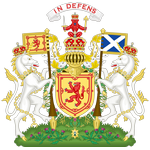
Offshore company formation in Scotland LP
Scotland (LP)
Offshore company formation in Scotland LP. An LP is a partnership between at least one general partner, who has unlimited liability for the debts and obligations of the LP, and one or more limited partners who contribute capital to the LP (either by contributing cash or property).
Limited liability


Tax
Tax transparency
LPs are broadly transparent for UK direct tax purposes and are not treated as separate taxable entities by HMRC. UK tax residents who are partners in LPs are directly assessed to tax on their share of the income or gains of the LP and therefore are not subject to multiple layers of UK taxation.
Partners who are not UK residents or ordinarily resident will only pay UK tax on UK source income, including their share of profits arising in the UK if the partnership carries on a trade in the UK.
What are the steps to forming a Scotland company?
- Name suggestion (2-3)
- Utility bill (both for General Partner and Limited partner) – please send the original
- Passport copy (both for General Partner and Limited partner) – please send the original
The agent will draft relevant documents for the client’s signature after the following information is submitted:
- Company/ownership structure (ID’ documents – passport copy, utility bill)
- Business plan
- Short description of business activities
Opening an offshore bank account
Price list
| 875 GBP | Registered office |
|---|---|
| Courier fee |
| 500 GBP | Certification (Registered certificate+Partnership Agreement) OR |
|---|
| 300 GBP | Certification (Registered certificate) |
|---|
| 500 GBP | Registered office |
|---|
| + 2000 GBP annualy* | Nominee service (EU based) |
|---|
| + 1500 GBP annualy* | Nominee service (Non-EU based) |
|---|
Find out more about what we can do for you…
Frequently asked questions
Scotland is a country that is part of the United Kingdom and covers the northern third of the island of Great Britain. Edinburgh is the country’s capital and second-largest city, after Glasgow.
Scotland’s head of state is the monarch of the United Kingdom, currently Queen Elizabeth II. Scotland has limited self-government within the United Kingdom, as well as representation in the UK Parliament. Executive and legislative powers respectively have been devolved to the Scottish Government and the Scottish Parliament at Holyrood in Edinburgh since 1999. The UK Parliament retains control over reserved matters specified in the Scotland Act 1998, including UK taxes, social security, defense, international relations, and broadcasting. The Scottish Parliament has legislative authority for all other areas relating to Scotland, as well as a limited power to vary income tax.
An LP is a partnership between at least one general partner, who has unlimited liability for the debts and obligations of the LP, and one or more limited partners who contribute capital to the LP (either by contributing cash or property). One of the main advantages of LPs is that provided they do not take part in the management of the LP, the liability of each of the limited partners is capped at the amount of its contribution to the LP, which means that limited partners benefit from the same limited liability status as shareholders in a limited company.
LPs are broadly transparent for UK direct tax purposes and are not treated as separate taxable entities by HMRC. UK tax residents who are partners in LPs are directly assessed to tax on their share of the income or gains of the LP and therefore are not subject to multiple layers of UK taxation.
Partners who are not UK residents or ordinarily residents will only pay UK tax on UK source income, including their share of profits arising in the UK if the partnership carries on a trade in the UK.
Nominee service is available and is consisted of one General Partner and one Limited Partner. Clients can pick between EU and Non-EU based Nominee services.
Every Scottish LP must keep appropriate accounting records, and prepare a Financial Statement annually. Also, Tax Declaration must be submitted to the UK Inland Revenue annually.
- Certificate of Formation
- Certificate of Registration
- LLC Agreement
- Resolution of Drawings
Company House will hold on public records only the names of the Members, which are commonly offshore entities.
The following business activities can not be permitted without a license: Fund management, insurance, Banking, reinsurance, assurance, trust management, collective investment schemes, and trusteeship business provision.
For Scotland LP we can assist you with the bank account opening internationally. The banks we cooperate with are reliable financial institutions with a long tradition in private and corporate banking. Our clients are provided with excellent customer service, online banking, Visa and/or Master cards, and other services, such as factoring, foreign exchange, savings, and specialized banking solutions.
What our clients say








Call us and we will start the process of opening a company today or schedule a consultation if you have any doubts

